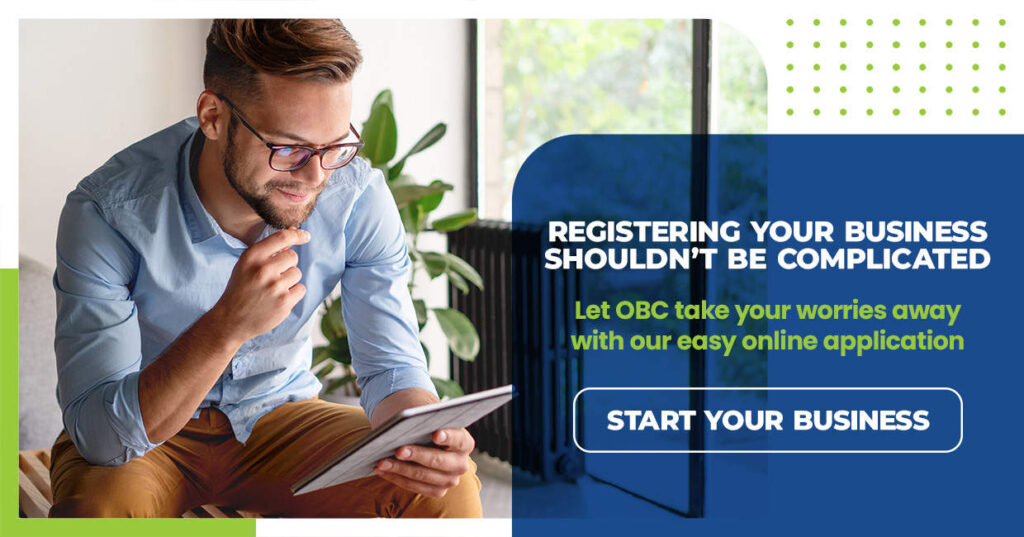Understanding Logistics Business: How to Start a Logistics Company

The logistics industry plays an integral role in global commerce. Logistics ensures that goods are transported efficiently from one point to another, which is crucial for all businesses ranging from small local shops to large multinational corporations. The seamless movement of products supports economic growth and connects markets, making logistics a backbone of trade and commerce.
Starting a business in the logistics sector can be a highly rewarding venture, given its significant impact on the global economy. A comprehensive financial plan, including sales tax considerations, is crucial to launch and scale your business successfully. If you also look forward to entering this dynamic domain and start a business, this is your ultimate guide. Here, you will find all you need to know about the transportation and logistics business and the types of businesses operating in the logistics sector. Furthermore, we will take you through the steps you need to follow to successfully launch your business in the logistics industry. So, let’s first have a clear overview of logistics businesses and how they work.
An Insight Into Logistics Business and How They Work
Logistics companies are crucial to global trade, ensuring that goods move smoothly from where they start to where they need to go. These companies handle everything from transporting goods initially to delivering them to their final destination. Some focus on specific parts of the delivery process, like managing freight or storing products in warehouses, while others might manage the whole supply chain.
At the core of any logistics operation are transportation and storage. Some companies focus solely on transportation, utilizing fleets of trucks, ships, or aircraft to move goods locally or internationally. Others specialize in warehousing, providing safe storage for goods as they await the next leg of their journey. However, many logistics providers offer a mix of both services to ensure a smooth transition of goods from start to finish.
To broaden their capabilities, logistics companies often partner with third-party logistics providers (3PLs). These partners take on specialized roles like packaging, assembly, and managing returns, allowing the main logistics firms to focus on their core competencies. This partnership is crucial for building an adaptable, cost-effective supply chain that meets the demands of a dynamic global market.
Exploring the Main Types of Third-Party Logistics Providers
Transportation Providers:
Transportation is a cornerstone of logistics services, involving a range of companies that specialize in moving goods. These include:
- Trucking Companies: Crucial for both short and long-distance deliveries, trucking companies ensure that goods arrive safely at their retail destinations or transfer points.
- Rail Transport Companies: Rail transport is highly efficient for moving large volumes of goods across land, providing a reliable and cost-effective solution due to its capacity and speed.
- Ocean Freight Providers: Ocean freight is cost-effective for transporting large volumes over long distances for transport businesses, although it generally involves longer transit times compared to other methods.
- Air Freight Carriers: When time is of the essence, air freight provides the fastest transportation method, though at a higher cost.
Whether by road, rail, sea, or air, these transportation and logistics companies ensure that every cargo reaches its intended destination securely and on time. Another critical player in the logistics field is the freight forwarder. Freight forwarders do not just move goods; they act as strategic partners and consultants, optimizing the entire shipment lifecycle.
Freight Forwarding Companies:
Freight forwarders serve as strategic partners within the logistics sector, optimizing shipment routes and methods for their clients. They manage the intricacies of shipping logistics, from customs clearance to compliance with international trade laws, ensuring that goods are delivered efficiently and cost-effectively.
Storage and Warehousing Solution Providers:
Warehousing companies provide a temporary holding ground for goods within the supply chain. Many established establishments not only store their products but also extend these logistics services to smaller businesses, allowing them to benefit from their extensive logistics network.
Supply Chain and Distribution Companies:
Distribution management companies oversee the entire distribution process, from procurement and production through to the final delivery. A comprehensive management aids businesses in streamlining their operations, enabling them to focus on their core activities. This is where a solid business strategy and effective project management integrate to ensure that financial practices, including sales tax and income tax compliance, are handled efficiently.
Logistics and Technology Integration:
Technology is crucial to enhancing logistical operations in this digital landscape. Companies in this sector develop innovative solutions like inventory management systems, sophisticated tracking tools, and efficient return processes, enhancing the operational efficiency of businesses.

Key Steps to Starting Your Own Logistics Company!
Starting a logistics company is a strategic decision that taps into the backbone of global trade. Whether you’re looking to start a freight forwarding business or a broader shipping company, the steps below will act as a beginner’s guide that will help you know the necessary processes to launch your venture successfully.
1. Identify Your Niche in Logistics
If you are looking for business ideas on how to start a logistics company, you first need to decide on your specific niche. Whether it’s freight forwarding or comprehensive shipping operations, understanding where your interests and the market’s needs align is crucial. This clarity will help you tailor your services and refine your business strategy, thereby targeting your marketing efforts more effectively.
2. Perform a Thorough Market Research
Conduct thorough market research to gauge the demand for logistics services in your target regions. Investigate potential competitors and identify any service gaps you can fill. This research is essential in positioning your new business to compete effectively in the logistics industry.
3. Create an Effective Business Plan
A solid business plan, enriched with business analytics, is your roadmap to success in the logistics field. It should outline your business goals, operational plan, financial plan, and marketing strategies. This document is vital not only for guiding your startup but also for attracting investors or securing loans.
4. Register Your Logistics Business
Formal registration of your logistics business, including deciding on business names, is a foundational step. Choose from types of business structures that suit your scale and scope—be it a sole proprietorship, or a private limited company. The choice of a Sole Proprietorship might be attractive for those starting out with limited capital and wishing to simplify income tax filing.
Determining the right business structure for registering your business makes it a legal entity capable of securing contracts and expanding its reach. Assess the pros and cons of each business structure and funding option to make informed decisions. Understanding the pros and cons can guide your strategic planning and risk management.
It’s equally important to select a business name that reflects your brand and makes a positive impression on potential clients. A memorable and relevant business name not only enhances your marketability but also contributes to establishing a strong presence in the competitive logistics industry.”
5. Get the Licensing and Compliance in Order
Obtain all necessary permits and licences to operate legally, including those related to sales tax compliance. This may include specific licenses for transportation, customs brokerage, or warehousing, depending on the services you offer. Ensuring compliance with all regulatory requirements is crucial to operate without legal hindrances.
6. Secure Funding
Assess your initial business finances and funding needs before you start a business, which could include capital for vehicles, technology, and warehouse space. Explore potential funding sources such as small business loans, business credit card financing, investor funding, or personal savings to cover these startup costs.
Business loans can provide the substantial initial capital needed for purchasing vehicles and technology. You can also use credit cards. Using them strategically can provide a quick influx of capital, which can be great for immediate purchases or bridging short-term financial gaps. Furthermore, you can also seek investor funding to help your business get significant financial support and resources, which is especially useful for scaling operations quickly. Besides, if you want to minimize external debt, bootstrapping through personal savings or reinvested earnings can maintain greater control over the business’s direction and equity.
7. Establish Your Operational Base
Set up the physical and technological infrastructure needed for your logistics operations. This could involve leasing warehouse space, purchasing transportation vehicles, and implementing a logistics project management system to oversee operations smoothly. Furthermore, you can implement CRM software to streamline customer interactions and operational management. CRM software is essential for tracking client relationships and enhancing customer service.
8. Assemble a Qualified Team
Your team is your company’s backbone. Hiring employees who are experienced professionals knowledgeable in logistics, from drivers and warehouse staff to operations managers and customer service representatives, is critical. Ensuring your team is well-trained and competent is essential for efficient business operations.
9. Market Your Business
Develop a comprehensive marketing strategy to promote your logistics services. Utilize digital marketing tactics such as SEO, social media, content marketing, etc., alongside traditional methods like networking and direct mail campaigns. Harness social media platforms to amplify your logistics company’s visibility. Effective use of social media can engage potential customers and build lasting relationships. Effective marketing will help you attract your first clients and build your business’s reputation.
10. Launch Operations
With all the pieces in place, you’re ready to launch your logistics business. Focus on operational excellence and customer service from the start. Satisfying your early customers will help establish your reputation and can lead to referrals and repeat business, which are crucial for building your business and growing it.
By following these steps, you’ll be well on your way to successfully starting a logistics company. Whether you aim to register a logistics business, start a freight forwarding business, or start and establish a full-scale shipping company, the key is thorough preparation and commitment to quality service.
Take the Leap Into Logistics With Ontario Business Central!
Are you ready to dive into the logistics industry? Now is the perfect time to launch your venture. Whether you’re looking to manage a global supply chain or start a local delivery service, Ontario Business Central is here to support your journey from start to finish.
With our expert guidance and comprehensive services, you can quickly register and start with a logistics or freight forwarding business and establish your shipping company successfully. Ontario Business Central makes it easier to navigate the complexities of the logistics sector and ensures you focus on what matters most—growing your business.
Contact us today to learn more about how we can help turn your logistics business idea into reality, or contact us to get started right away.
inquiries@ontariobusinesscentral.ca
Toll-Free: 1-800-280-1913
Local: 1-416-599-9009
Fax: 1-866-294-4363
Office Hours: 9:00am – 5:00pm
Monday – Friday E.S.T.
Ontario Business Central Inc. is not a law firm and cannot provide a legal opinion or advice. This information is to assist you in understanding the requirements of registration within the chosen jurisdiction. It is always recommended, when you have legal or accounting questions that you speak to a qualified professional.


